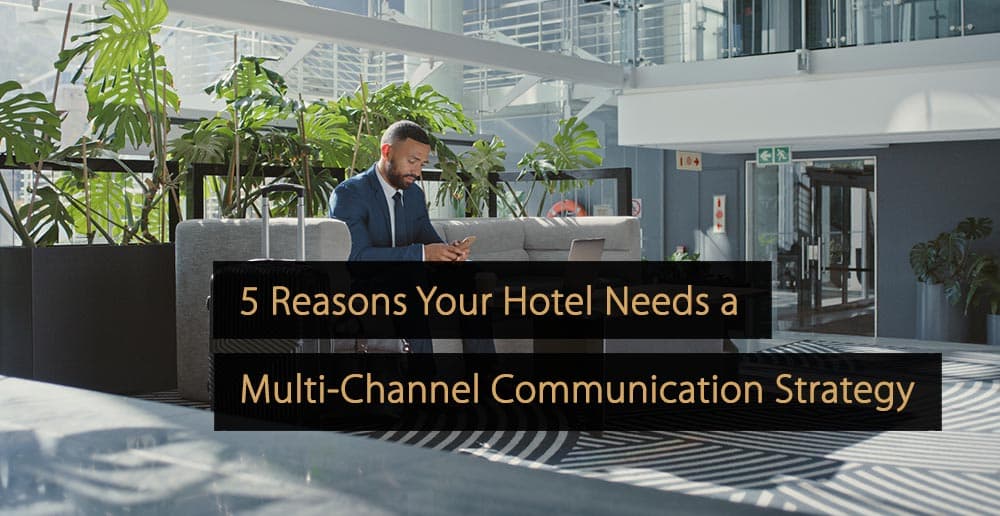While a familiar term in the hospitality industry, the broader perception of the word ‘upselling’ could use an improved reputation– and for a good reason. As consumers, we’re bombarded with offers and deals that distinctly fail in hiding their brazen disregard for the consumer. There’s nothing more off-putting than selling an item or service that is clearly in the seller’s interest only.
Upselling a Valuable Win-Win Situation for Both Guests and Hoteliers
The reality is that upselling is and will remain a valuable source of revenue for hotels, who now more than ever need to establish reliable income streams. Luckily for hotels across the world, upselling, when done correctly, doesn’t need to alienate your guests. Rather, it can present a valuable win-win situation for both guests and hoteliers.
What is the Difference Between Good and Bad Upselling?
There are several ways to get started on the right foot with upselling – whether upselling in person or online. Educating oneself on the guest’s perspective, stay details, and body language is paramount.
Exclusive Tutorial Video Good and Bad Upselling
Revfine.com has been given exclusive access to a full video tutorial by Oaky Sales Development Representative (SDR) and hospitality veteran Mallory Wünsch, who expands on Good vs. Bad Upselling in both front desk and digital situations.
Key Takeaways From Mallory’s Lesson Include:
- A mantra to keep in mind: ‘it’s not about selling, it’s about providing a service’
- Recognizing the delicate balance between offering helpful assistance and becoming an annoyance
- Knowing your customer, whether at the front desk or through software. Educating yourself on specific details about your guest will help you tailor your upselling approach
- A demonstration of how poor body language, a flat tone of voice, and offers of unsuitable add-ons can collectively decrease a guest’s receptiveness to upselling
Mallory’s Upselling Tips:
- Read the guest’s body language. Are they stressed or in a hurry? Better leave the upselling for another time in this case
- Read the situation. Hoteliers have the luxury of having access to a summary of the guest’s situation in their reservation details. Are they staying in the week or on the weekend? Are they alone or with family? Will they be staying a long while or just for the day?
- Know your options. There’s nothing worse than scoring an upsell than realizing your hotel can’t supply it. Be prepared beforehand with a list of available services or upgrades that the guest may opt-in for
- Don’t push the upsell. Your guest isn’t necessarily someone who can make split-second decisions. So once you have highlighted the service or upgrade and its benefits, give the guest space to mull it over
- Be enthusiastic. You need to believe it to sell it! A smile and a bit of excitement about the offer can go a long way
- Show compassion. Demonstrate that you see things from your guest’s perspective. If they have kids with them, you can comment about your hyperactive children, for example, before suggesting kids activities or babysitting upsells to give your guests some time to unwind
- Reinforce their decision. Give your guests the feeling that their choice to upgrade or add a service was a good one.
Free Course: Join the Full Online Upselling Course
We hope you enjoyed this exclusive video on good vs. bad upselling for hotels and have already started gathering useful notes for your team. Mallory’s tips form part of the Online Upselling Course The Fundamentals of Upselling. Click here to go to the free course “The Fundamentals of Upselling”.
The first of its kind in hospitality, this course will comprise three levels that increase in complexity and value at every stage. Covering both in-person and digital hotel upselling basic principles offers both novices and more experienced hoteliers a refreshing take on upselling and its many advantages.
Get started on the road to better upselling and earn your Upselling Associate certificate for free! Learn about several ways to get started on the right foot with upselling – whether upselling in person or online.
More Tips to Grow Your Business
Revfine.com is the leading knowledge platform for the hospitality and travel industry. Professionals use our insights, strategies, and actionable tips to get inspired, optimize revenue, innovate processes, and improve customer experience.Explore expert advice on management, marketing, revenue management, operations, software, and technology in our dedicated Hotel, Hospitality, and Travel & Tourism categories.








Leave A Comment